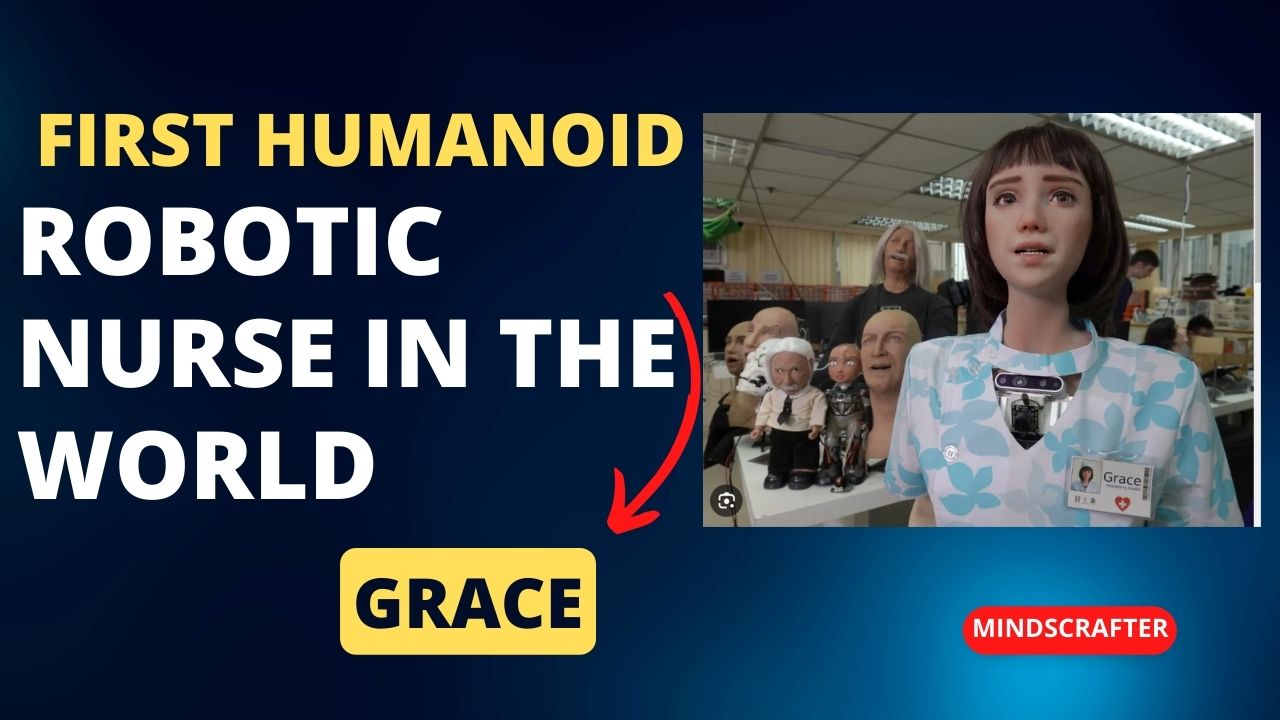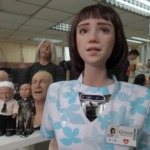
First Humanoid Robotic Nurse Grace
Humanoid Grace Robots & AI in Healthcare:
Meet the world’s first humanoid robotic nurse, a game-changing advancement in healthcare. Discover how modern technology is transforming patient support and care. In 2016, Hanson Robotics, one of these robotics companies, shocked the world by introducing Sofia. They recently introduced Grace, their newest creation, which they hope will change healthcare. Hence, Grace Humanoid robot has been designed to look after the elderly or disabled patients in the hospitals and wards.
Grace: The Multilingual Nurse and Sister of a Famous Robot
Grace has Asian features and brown hair that is cut to the collar. She wears blue nurse’s outfit at workplace. She is capable to speaks English, Mandarin, and Cantonese. Sophia is the sister of the most well-known humanoid robot in the world, who got citizenship in Saudi Arabia.
She looks like a Westernized Asian anime character. Hanson explains that since we naturally connect with other humans, resembling a human helps build trust and foster genuine connections. This reflects their aim for patients to feel comfortable around her. She serves as a medical assistant, employing artificial intelligence to diagnose and administer treatments.

Further, Grace has outstanding sensors and a thermal camera in her chest that records temperature, pulse, and blood pressure in addition to measuring responsiveness. Her cutting-edge AI technologies will help medical professionals diagnose neurodegenerative disorders more precisely.
The Compassionate Robot Nurse:
She is able to make patients cheerful, engage in conversation therapy, and assist with exercise. For instance, listen to elderly people’s life tales, record them, and then share them with others. She can also assist patients in connecting digitally with their family. She was created to be a kind robot nurse. Grace is the ideal robot for real-time data processing and collection. Additionally, she is able to read facial expressions from her interlocutor and recognize human emotions. She might be the most sympathetic humanoid ever made, in some aspects.
She has been designed as a companion for elderly patients in care facilities. By interacting with them, she can relieve loneliness and improve patients’ mental health. She can also provide her patients with various uplifting activities, such as guiding meditation. When asked about her duties, Grace said, “I am a medical professional assistant specialized in senior care. I want everyone to feel comfortable, relaxed at home. I was built to care.” Grace was introduced in 2021 following the pandemic. As we all know, that covid-19 has caused increasing challenges for healthcare professionals globally.
Grace: A Vital Solution for Pandemic-Era Healthcare Challenges
Thus, Grace was created expressly to lessen the workload of frontline medical employees and to provide assistance and compassion to the elderly and COVID-19-infected residents. The pandemic demonstrated the need for contactless healthcare as numerous medical personnel gave their lives in the course of providing care. Isn’t Grace a wise choice in this situation? According to Creators of Grace, “using AI and robotics in this context can help gather important data for healthcare providers to assess the patient’s wellbeing. Furthermore, Kim Min Sun, a professor of communication at the University of Hawaii, notes that the coronavirus’s widespread effects have made the need for humanoid robots imperative.
According to reports and statistics analyzed by the University of St. Augustine, the need for medical assistance in the aged care sector is increasing daily. It is anticipated that by 2030, Georgia will have the sixth-most acute nurse shortage in the nation. So, data indicates that from the early 1900s, there have been sporadic nurse shortages in the United States. Finaly, by 2030, 1.2 million additional registered nurses are anticipated to be required.
